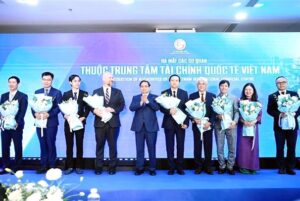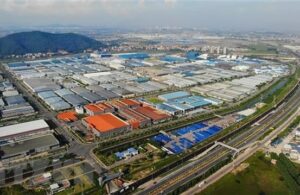Vietnam’s Data Centre Industry Set for Growth with New Investments and Digital Reforms

Hanoi, The Gulf Observer: Vietnam’s data centre sector is experiencing a surge in growth, spurred by recent reforms and foreign investments in digital infrastructure. With an open investment environment and a shift in focus from other Southeast Asian markets, Vietnam is poised to become a significant player in the regional data centre landscape.
In mid-October, during a meeting with Vietnamese Prime Minister Phạm Minh Chính, the chairman of South Korean conglomerate Hyosung announced plans to invest an additional $4 billion in Vietnam, primarily aimed at expanding industrial data centres and high-tech material production. This investment is expected to generate approximately 10,000 jobs, boosting the local economy and enhancing Vietnam’s role in the digital economy.
Other foreign investors, including Alibaba, Google, and a major investor from Singapore, have also shown interest in Vietnam’s data centre industry. Market analysts at Research and Markets project that Vietnam’s data centre market will surpass $1.26 billion by 2030, with a compound annual growth rate of 10.8%. The sector is especially appealing as Vietnam continues promoting a digital economy and attracting investments in semiconductor technology and artificial intelligence (AI).
Vietnam’s data centre capacity currently stands at approximately 148 megawatts (MW), with a further 80MW under development. Notably, STT is constructing a 60MW facility in HCM City, while Viettel plans a major expansion with an additional 560MW by 2030.
Following the updated Telecommunications Law 2023, which took effect on July 1, Vietnam has opened its cloud computing and data centre market to full foreign ownership. This reform, which removes the previous 49% cap on foreign investment, has sparked considerable interest, paving the way for increased investment. Alongside these reforms, the government is expanding digital infrastructure, including 5G, fibre optics, and subsea connections, which create an attractive environment for data centre growth.
Research from BMI Country Risk & Industry Research suggests that Vietnam could gain close to 1GW of data centre capacity from both local and foreign investors, potentially making it the third-largest data centre market in emerging Southeast Asia. Although challenges remain, including limited access to U.S.-made GPUs for data processing, alternatives like Huawei’s Ascend chips are emerging as solutions.
At the recent 2024 Investor Conference by VinaCapital, CEO Don Lam noted a Singaporean investor’s plans to invest over $1 billion in a Vietnamese data centre, contingent on renewable energy usage, which would set it apart from competitors. Currently, the domestic market is led by companies like VNPT, Viettel IDC, FPT Telecom, and CMC Telecom, which together hold 97% of the market.
Vũ Hoàng Liên, chairman of the Vietnam Internet Association, attributes data centre growth to rising digitalisation, cloud computing needs, and 5G development. “The government’s digital transformation goals, which aim to move half of Vietnamese businesses onto digital platforms by 2025, create strong demand for low-latency data centres,” he stated.
However, the rapid growth of data centres could place stress on the power grid, particularly for energy-intensive sectors like AI and semiconductor production. Cushman & Wakefield Vietnam’s CEO, Trang Bùi, noted that power shortages, limited incentives, and outdated internet infrastructure still pose challenges for investors. Yet, Vietnam’s competitive position as a less-saturated market is increasingly attractive as Malaysia introduces stricter sustainability regulations.
With continued investment and strategic reforms, Vietnam is positioning itself as a leading digital hub in Southeast Asia, drawing on its strategic location, young tech-savvy population, and demand for advanced data solutions.


